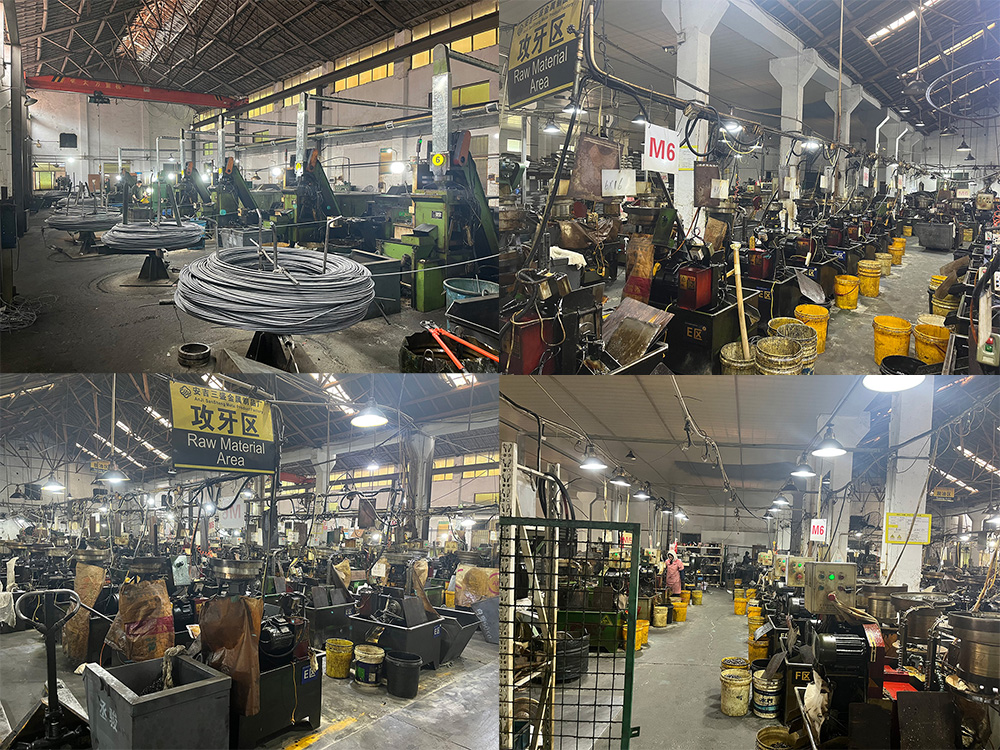Hex Nut vs Flange Nut: Which One Should You Use?
When choosing the right fastener for your project, understanding the difference between a Hex Nut and a Flange Nut is crucial. Although they may look similar at first glance, their performance, installation methods, and cost implications vary significantly. Below, we will compare the two types of nuts in terms of installation method, anti-loosening performance, and cost, and help you determine which one is best suited for your application.

Hex Nut Installation Method: Simple but Requires Extra Washers
A Hex Nut is the most common type of nut used in industrial and mechanical assemblies. It features six sides for easy wrench grip and typically requires a flat washer or spring washer to distribute load and prevent surface damage.
While the installation of hex nuts is straightforward, it involves multiple components — nut, washer, and sometimes a lock washer. This means more assembly steps and potential alignment challenges.
In summary, hex nuts are versatile and easy to replace; however, when load distribution or anti-loosening performance is crucial, additional parts are necessary to achieve reliable fastening.
Flange Nut Installation Method: Built-in Washer for Faster Assembly
A Flange Nut integrates a wide flange at its base, acting like a built-in washer. This flange spreads the load over a larger area, reducing pressure and potential surface damage.
Many flange nuts are also designed with serrated (toothed) bases, providing additional grip and vibration resistance. This makes them ideal for applications where quick installation and high stability are required.
Key advantage: With a flange nut, you don’t need separate washers — saving assembly time and improving efficiency, especially in automated production lines.
Hex Nut Anti-Loosening Performance: Relies on External Locking Methods
Standard Hex Nuts have limited vibration resistance and may loosen over time in high-vibration environments. To improve locking performance, additional components such as nylon inserts, spring washers, or thread-locking compounds are often used.
This means hex nuts can be flexible and cost-efficient, but they rely on complementary locking methods to maintain secure fastening under dynamic loads.
Flange Nut Anti-Loosening Performance: Stronger Stability Under Vibration
Compared with hex nuts, Flange Nuts (especially serrated flange nuts) provide superior anti-loosening performance. The serrated flange surface bites into the material, preventing the nut from rotating due to vibration or torque.
The built-in flange also helps maintain even pressure distribution, minimizing loosening even in demanding mechanical environments such as automotive engines or heavy machinery.
Ideal use: Environments with frequent vibration, such as vehicles, construction equipment, or industrial machinery.
Cost Difference Between Hex Nuts and Flange Nuts
While Hex Nuts are cheaper per piece due to simple manufacturing, they require additional washers or lock components, increasing overall cost in assembly-heavy operations.
Flange Nuts, although slightly more expensive per unit, eliminate the need for washers and save installation time, reducing labor costs in large-scale production.
Conclusion:
For small-batch or manual assembly, hex nuts are more economical.
For high-efficiency assembly lines, flange nuts offer better long-term cost savings.
Application Industries: Which Nut Type Fits Your Project
Both Hex Nuts and Flange Nuts have their strengths in different industrial applications.
In automotive and motorcycle manufacturing, flange nuts are preferred for their excellent vibration resistance and faster installation speed, which are critical in engine and chassis assemblies.
In heavy machinery and industrial equipment, flange nuts also perform better because they maintain fastening stability even under dynamic or high-load conditions.
For construction and structural steel projects, hex nuts are widely used due to their cost-effectiveness and suitability for static load connections.
In furniture manufacturing and light industries, hex nuts are often chosen for their clean appearance, flexibility, and lower cost, which makes them ideal for low-vibration environments.
Meanwhile, electronics and home appliance manufacturers may favor flange nuts, as the built-in flange helps protect delicate surfaces and simplifies assembly by reducing part count.
Each type has its own niche — the best choice depends on your project’s vibration level, assembly speed requirements, and overall cost considerations.
Xinchi Fastener Factory — Your Reliable Supplier of Hex Nuts and Flange Nuts
Hangzhou Xinchi Fastener Co., Ltd. specializes in manufacturing and supplying Hex Nuts, Flange Nuts, T Nuts, Rivet Nuts, and other cold-forged fasteners. Founded in 2007, our factory covers over 10,000 m² with 102 cold heading machines and a daily output exceeding 10 million pieces.
The new factory, spanning 30,000 m² with two six-story buildings, represents a significant upgrade in production capacity and efficiency.

We are an ISO 9001:2015 certified manufacturer and the designated fastener supplier of STAPLE.
XINCHI is a trustworthy fastener company, especially in furniture nuts. We have a factory that was founded in 2007. We are the designated fastener supplier to“STAPLE”. As a trusted fastener supplier, XINCHI offers a wide range of high-quality fasteners, including nuts, screws, bolts, rivets, and washers. Our products are widely used in automotive, machinery, construction, electronics, and furniture industries, trusted by global customers for stability, precision, and durability.
Choose Xinchi — your expert partner for all Hex Nut and Flange Nut solutions. If you would like to learn more about fasteners or are interested in wholesale fasteners, please do not hesitate to contact us.

